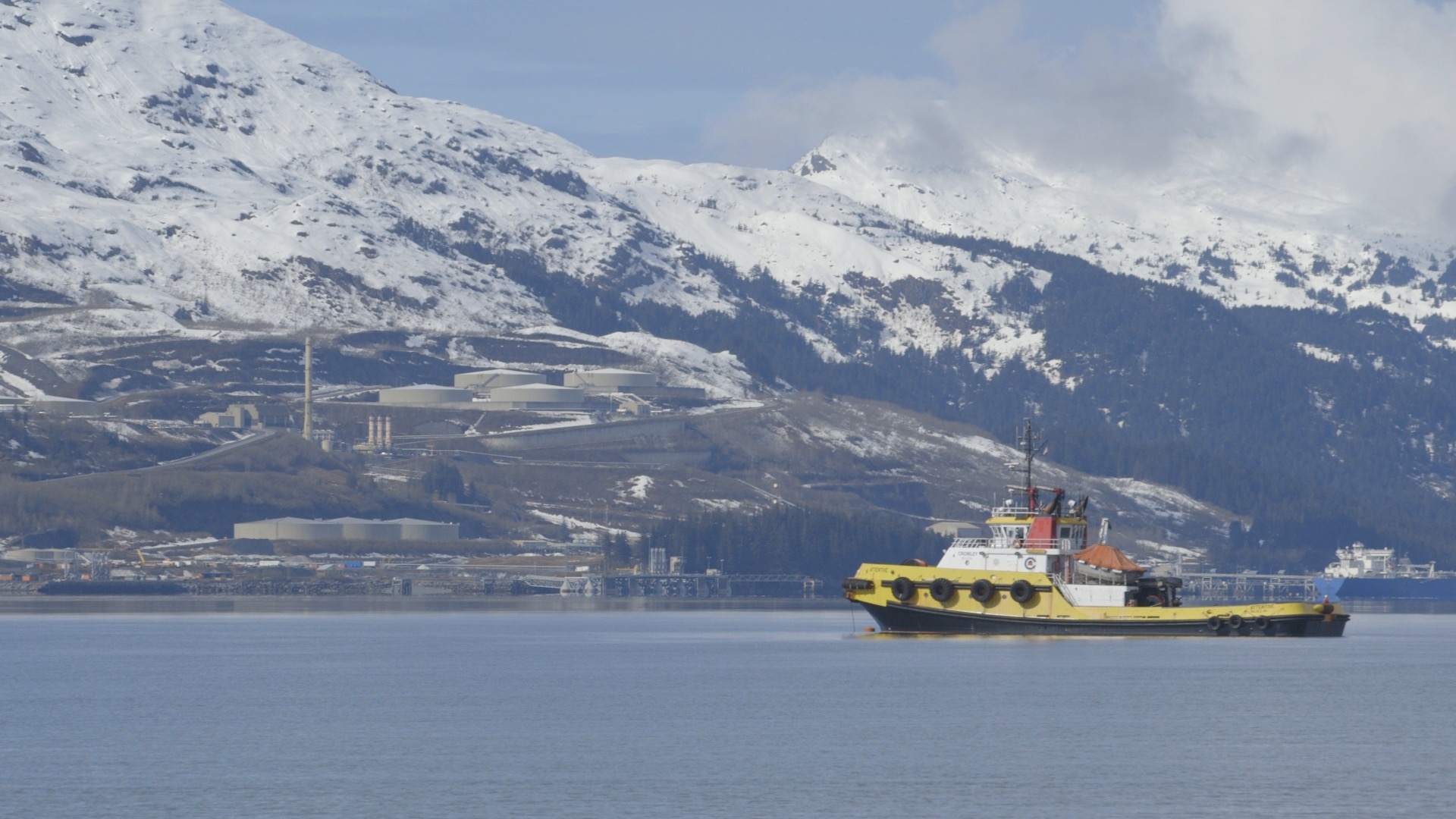
State regulators are asking the operator of the trans-Alaska pipeline and oil shippers to offer more proof that new tugboats being built for Prince William Sound are up to the job of preventing major oil spills.
In late February, the Alaska Department of Environmental Conservation wrote that design information submitted so far is “unacceptable for the department’s decision making process,” adding that “the very limited data provided to date indicates that substantial vessel design deficiencies may exist, particularly in the area of winter operations.” (The letter was first reported by the Alaska Dispatch News.)
Pete LaPella is an environmental specialist with the department in Valdez.
“If we weren’t concerned, we wouldn’t be having this discussion,” LaPella said.
The department oversees the oil spill prevention and response system set up after the 1989 Exxon Valdez disaster in Prince William Sound. Under that system, the Alyeska Pipeline Service Co., which operates the trans-Alaska pipeline, maintains a fleet of tugboats to escort oil tankers to and from the Valdez Marine Terminal, as well as barges that can respond in case of a spill. Last year, Alyeska announced plans to switch contractors for the first time, bringing in the Louisiana-based company Edison Chouest Offshore. As part of the contract, Edison Chouest is building new vessels to replace the current, older fleet.
But LaPella said the state hasn’t yet received information proving those new boats can operate in Alaska, especially in the winter. And, he said, it’s unclear what kind of testing has been done to confirm the vessels can handle Prince William Sound.
“It’s our job to trust but verify,” LaPella said. “And that’s what we’re trying to do, is work with industry to make sure that what they’re doing is going to be in the best interest of the state of Alaska.”
The state’s letter echoes concerns raised last month by the region’s official oil spill watchdog group, the Prince William Sound Regional Citizens’ Advisory Council.
Alyeska spokesperson Michelle Egan said the company is working with the state to supply the necessary information.
In testimony before the Alaska Legislature on Wednesday, Alyeska President Thomas Barrett expressed some frustration with regulators, saying the department hasn’t been clear about what it needs. But, he said, Alyeska and Edison Chouest are confident their plans will pass muster.
“We’re asking, quite frankly with DEC, we’ve said, give us the list of what you think you need to have, and when to have it, and we’ll get it to them,” Barrett said.
The companies plan to have the new vessels in place by July 2018.
Rachel Waldholz covers energy and the environment for Alaska's Energy Desk, a collaboration between Alaska Public Media, KTOO in Juneau and KUCB in Unalaska. Before coming to Anchorage, she spent two years reporting for Raven Radio in Sitka. Rachel studied documentary production at the UC Berkeley Graduate School of Journalism, and her short film, A Confused War won several awards. Her work has appeared on Morning Edition, All Things Considered, and Marketplace, among other outlets.
rwaldholz (at) alaskapublic (dot) org | 907.550.8432 | About Rachel




